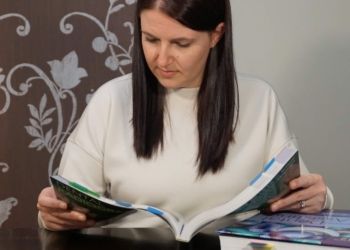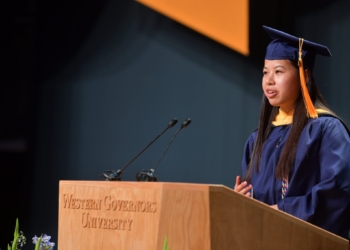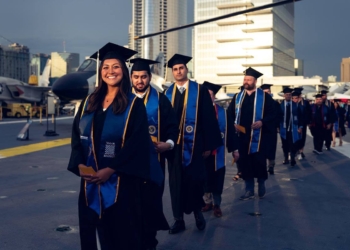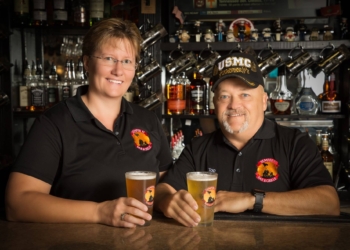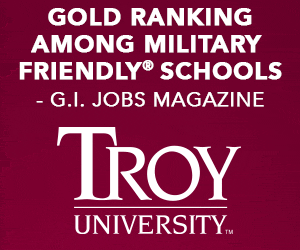Next year will mark the 15th anniversary of Student Veterans of America, and the organization plans “12 months of celebration,” kicking off with its annual national conference in January.
“Every month, we’re going to feature unique stories of the history and mission of SVA, and our vision for the future,” said Jared Lyon, national president and CEO of SVA, which has nearly 1,600 chapters representing an estimated 754,000 student veterans.
A big focus in 2023 will be to connect employers nationwide with student veterans, who, Lyon said, earn bachelor’s degrees at twice the rate of the average American.
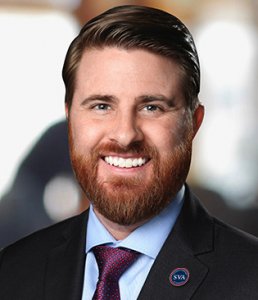
Employers who want to hire veterans typically focus on those who just came out of the military, Lyon said. However, 70% of people who leave active duty enroll in school within seven months, and about three-fourths of student veterans also work, mostly with part-time jobs in the retail and service industries, he said.
“There is this whole (pool of) talent hiding in plain sight,” he said.
SVA will work on increasing awareness among education institutions about the importance of providing inclusive child care, one of the most pressing issues among student veterans, Lyon said. Twenty percent of student veterans are single parents, and 52% are married with children, he said.
Some universities are finding “creative solutions,” like Colorado State University, which has an early childhood center, staffed by students, that serves student veterans for free or at reduced cost, he said.
Local SVA chapter representatives said it’s crucial to have supportive university leadership, including an administrator specifically entrusted with overseeing veteran-related issues.
Allison Manville, SVA chapter secretary at Grand Valley State University in Michigan, said that when she enrolled in 2019, members met in a small area “shoved in a corner.” Then came a new university president who hired a military and veteran resource manager, and eventually the chapter secured its own space on two of the university’s campuses, she said.
“We can go there to eat lunch and spend time between classes,” she said. “It’s really nice.”
Besides the camaraderie, SVA is a great place to find resources like tutoring and information on subjects like veterans’ benefits, Manville said. The chapter also is connected to a veteran alumni group for continued support after graduation, said Manville, who has two children and will graduate in December.
RELATED: School liaison: Program growing to support more than transition
Carla Suarez, 27, a member of the SVA chapter at Loyola University Chicago, said her chapter has grown largely due to the commitment of new leadership at the school’s Military Veteran Student Services office.
“There was a lot of turnover (at the chapter) before,” said Suarez, who also will graduate in December. “Now it’s a lot more stable, and it feels like a community.”
The chapter currently meets in an “oversized cubicle” and hopes to secure its own space on campus, Suarez said. It has started to hold consistent monthly events, including recreational, and plans to work on connecting student veterans to employment opportunities, she said.
It’s especially important to bring together student veterans because their background and average age sets them apart from traditional undergraduates, Suarez said. After she took a semester off to welcome her child in April 2020, SVA helped her figure out that she could use her veteran’s benefits longer than she initially thought, she said.
“That took a really big load off me,” she said.
SVA hopes that next year, more states will enact legislation — like Nebraska has done — that paves the way for student veterans to enroll in school when they leave active duty, Lyon said.
Additionally, colleges can do so individually, he said, following the example of Grand Valley State University, whose “Veteran Promise” offers deferred pre-approved admission for high schoolers who enlist for at least two years.
“At a time when the majority of branches are likely to not meet their recruiting mission, this is something really innovative,” he said.
Another area of focus for SVA will be addressing monthly housing allowances in the Post-9/11 GI Bill, which have become too low for today’s cost-of-living standards and penalize students who take online classes, he said. Also, student veterans’ benefits should include access to study abroad opportunities, he said.




















